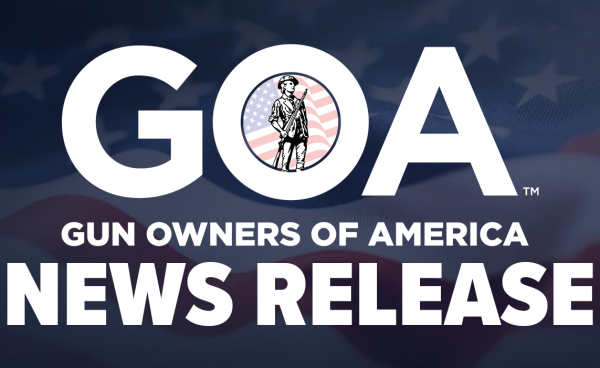Settlement Follows AG James’ Win in Liability Phase of NRA Trial Where Jury Found NRA, Phillips, and Wayne LaPierre Liable for Breaking Not-for-Profit Laws
NEW YORK – New York Attorney General Letitia James today announced a settlement with the National Rifle Association’s (NRA) former Chief Financial Officer (CFO) Wilson “Woody” Phillips banning him from serving as a fiduciary of a not-for-profit in New York for 10 years and requiring training before returning to any such position. In February, a jury found Phillips liable for violating his duties in managing the NRA and its financial affairs and ordered him to pay $2 million in damages. A second phase of the trial, set to begin on July 15, was going to determine whether Phillips should be barred from re-election or appointment as an NRA officer or director, or from serving as a fiduciary in any other New York state not-for-profit corporation. Today’s agreement keeps the jury’s verdict against Phillips intact, including the monetary damages he has to pay, and removes him from the second, remedial phase of the trial against the NRA, Wayne LaPierre, and John Frazer, who were senior executives of the NRA until recently.
“New Yorkers deserve to know that when they support a not-for-profit, those donations are being used to advance its mission, not squandered on lavish perks for staff or cronies,” said Attorney General James. “For decades, Wilson Phillips oversaw and allowed financial mismanagement and corruption at the NRA, and that is why the jury found him, the NRA, and his co-defendants, senior executives Wayne LaPierre and John Frazer, liable for their misconduct. Today’s agreement should serve as an example that my office will hold anyone, and everyone, involved in abusing their power or misappropriating funds accountable.”
Attorney General James filed a lawsuit against the NRA and the other current and former senior officers in August 2020. On the eve of the trial, Wayne LaPierre stepped down as Executive Vice President and CEO of the NRA, a role he held for more than 30 years. The jury found all of the defendants—the NRA, LaPierre, Phillips, and Frazer—liable for violating New York not-for-profit laws. Phillips was found liable for failing to uphold his duties as a nonprofit executive and ordered to pay $2 million in damages. The jury also concluded that LaPierre abused his position, violated his duties to the NRA, and caused $5.4 million in financial harm to the NRA. He was ordered to pay $4.35 million to the NRA after crediting payments he made in advance of the trial.
Over the course of a six-week trial, the Office of the Attorney General (OAG) presented evidence revealing the extent of the NRA and its senior leaders’ violations of the law and misuse of NRA funds. The evidence presented included:
- Invoices of repeated private flight trips to the Bahamas taken by Wayne LaPierre with friends and family and paid for by the NRA that were allowed by Phillips;
- Expense reports submitted by Wayne LaPierre and paid by the NRA for reimbursement of outdoor mosquito treatment at his house, landscaping for his house, and gifts for friends and family;
- Lucrative NRA contracts given to companies owned by LaPierre’s friends, from whom he received valuable gifts, with payments to such companies approved and facilitated by Phillips;
- Invoices worth more than $4 million dollars from the NRA’s then-largest vendor, Ackerman McQueen, described as “out-of-pocket” expenses with no detail and which Phillips allowed to be used as a pass-through for expenses incurred by NRA Executives, including high-end travel expenses for Wayne LaPierre and hair and makeup expenses for LaPierre’s wife; and
- Testimony from whistleblowers detailing harassment, intimidation, or other forms of retaliation by the NRA for raising concerns about the misuse of funds.
The second phase of Attorney General James’ trial against the NRA, LaPierre, and Frazer is set to begin on July 15 before Justice Joel Cohen, sitting without a jury, to determine non-monetary relief.
The matter is being handled by Assistant Attorney General and Special Counsel Monica Connell and Chief of the Enforcement Section Emily Stern, with a team including Bureau Chief James Sheehan, Assistant Attorneys General Jonathan Conley, Erin Kandel, Jonathan Lester, Alexander Mendelson, Steve Shiffman, Daniel Sugarman, Stephen Thompson, and William Wang, and legal assistant Nyna Sargent — all of the Charities Bureau — and with additional assistance from legal assistants Luz Ceballos-Lopez, Sophia Friedman, Imani Saddler, and Jacqueline Sanchez. The Charities Bureau is part of the Division for Social Justice, which is led by Chief Deputy Attorney General Meghan Faux and overseen by First Deputy Attorney General Jennifer Levy.







